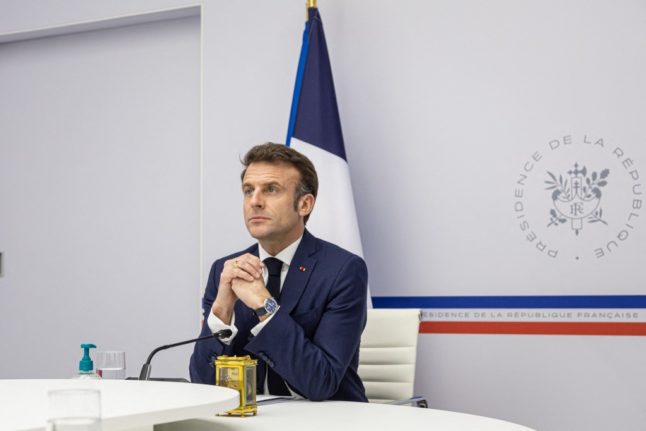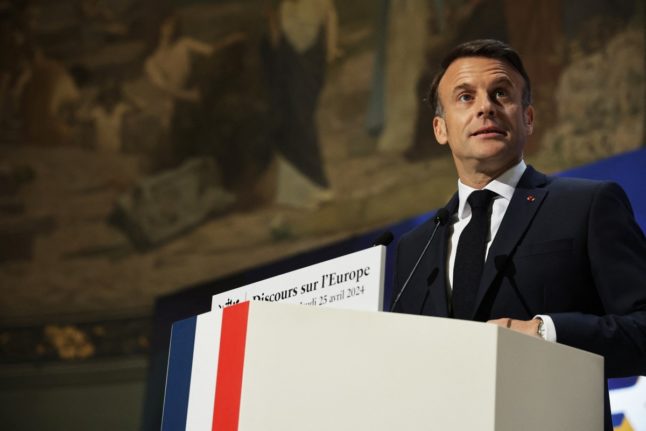Speaking a day after Beijing called for urgent peace talks and released a plan to end the year-long conflict, Macron said: “the fact that China is engaging in peace efforts is a good thing”.
On Friday, China released a 12-point position paper on the conflict calling for urgent peace talks and a “political settlement” to the Ukraine crisis. Several Western powers rebuffed the proposals and also warned against Beijing’s close ties to Moscow.
Talking on the sidelines of an agricultural show in Paris, the French leader said peace was only possible if “Russian aggression was halted, troops withdrawn, and the territorial sovereignty of Ukraine and its people was respected”.
Timed to coincide with the first anniversary of Russia’s invasion of Ukraine, the Chinese paper urges all parties to “support Russia and Ukraine in working in the same direction and resuming direct dialogue as quickly as possible”.
It also makes clear its opposition to not only the use of nuclear weapons, but the threat of deploying them, after Russian President Vladimir Putin threatened to use Moscow’s atomic arsenal in the conflict.
Macron urged Beijing “not to supply any arms to Russia” and sought Beijing’s help to “exert pressure on Russia to ensure it never uses chemical or nuclear weapons and it stops this aggression prior to negotiations”.
Macron said in an interview last weekend that he wanted Russia to be defeated in its war with Ukraine, but not “crushed”.
“I want Russia to be defeated in Ukraine, and I want Ukraine to be able to defend its position,” he told French newspapers JDD and Le Figaro and broadcaster France Inter.
But he did not, like some, want the fight to be taken on to Russian soil. Such people, he said, “want above all to crush Russia.
“This has never been the position of France and it never will be.”
Lukashenko visit
China has been looking to play a role as mediator in the Russian-Ukrainian war. Beijing announced earlier on Saturday that Belarusian President Alexander Lukashenko would visit China from February 28th to March 2nd.
Lukashenko, a close ally of Putin and Belarus, which shares a border with Ukraine and Russia, allowed Moscow to use its territory to launch its invasion of Ukraine.
On Friday, Ukrainian President Volodymyr Zelensky said that he was planning to meet China’s Xi Jinping and expressed hope that China would support a “just peace”.
Beijing has sought to position itself as a neutral party in the conflict, while maintaining close ties with strategic ally Russia.
On Thursday, China abstained from a UN General Assembly vote demanding that Russia immediately and unconditionally withdraw its troops from Ukraine.
Russia has said it appreciated Beijing’s efforts to settle the conflict but that any solution should recognise Kremlin control over four Ukrainian regions.
On Friday, US President Joe Biden said there was no proof that China had provided weapons to Russia in its war against Ukraine.
READ MORE: Ukraine war turns French port of Rouen into grain powerhouse



 Please whitelist us to continue reading.
Please whitelist us to continue reading.
Member comments